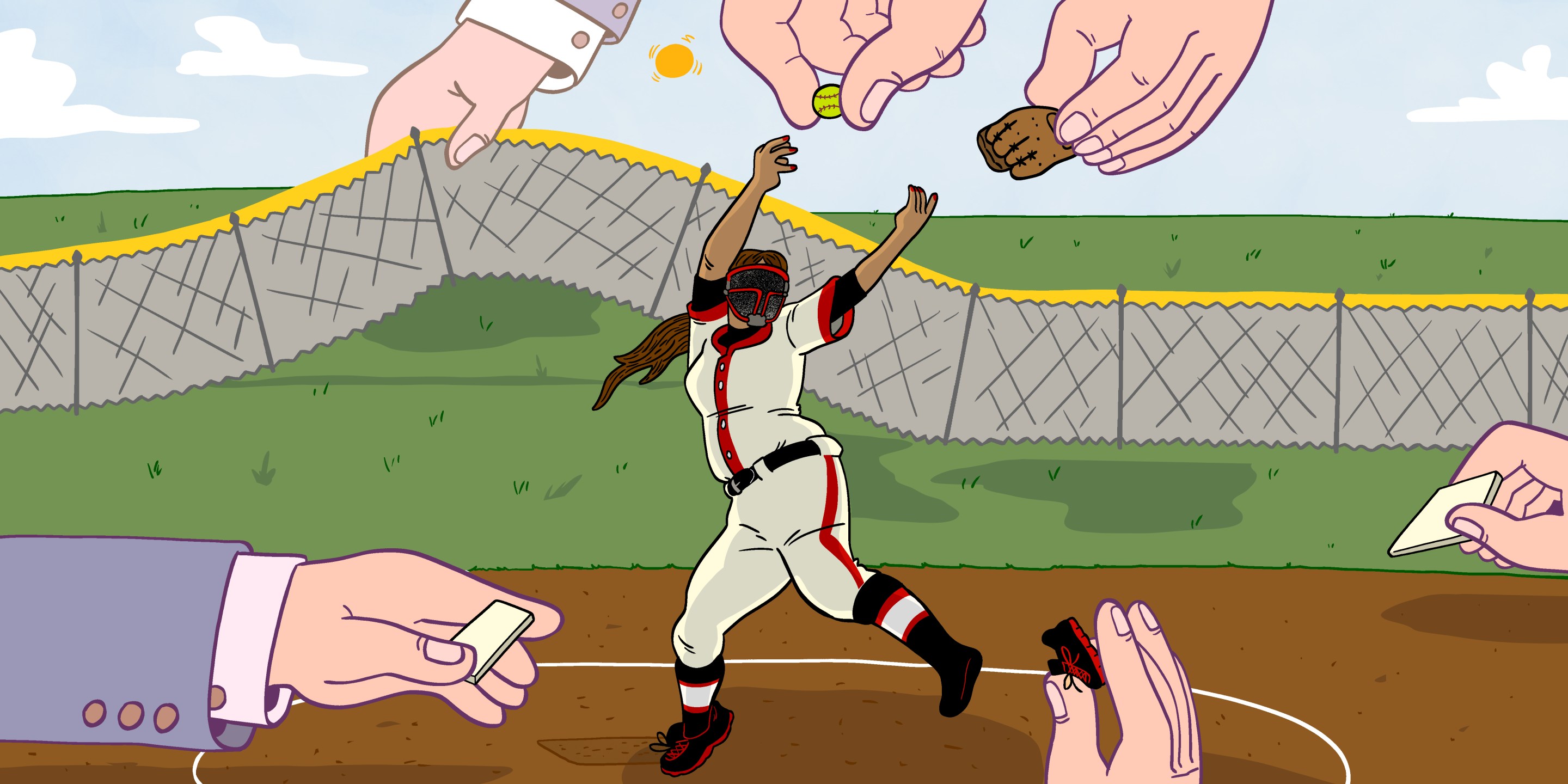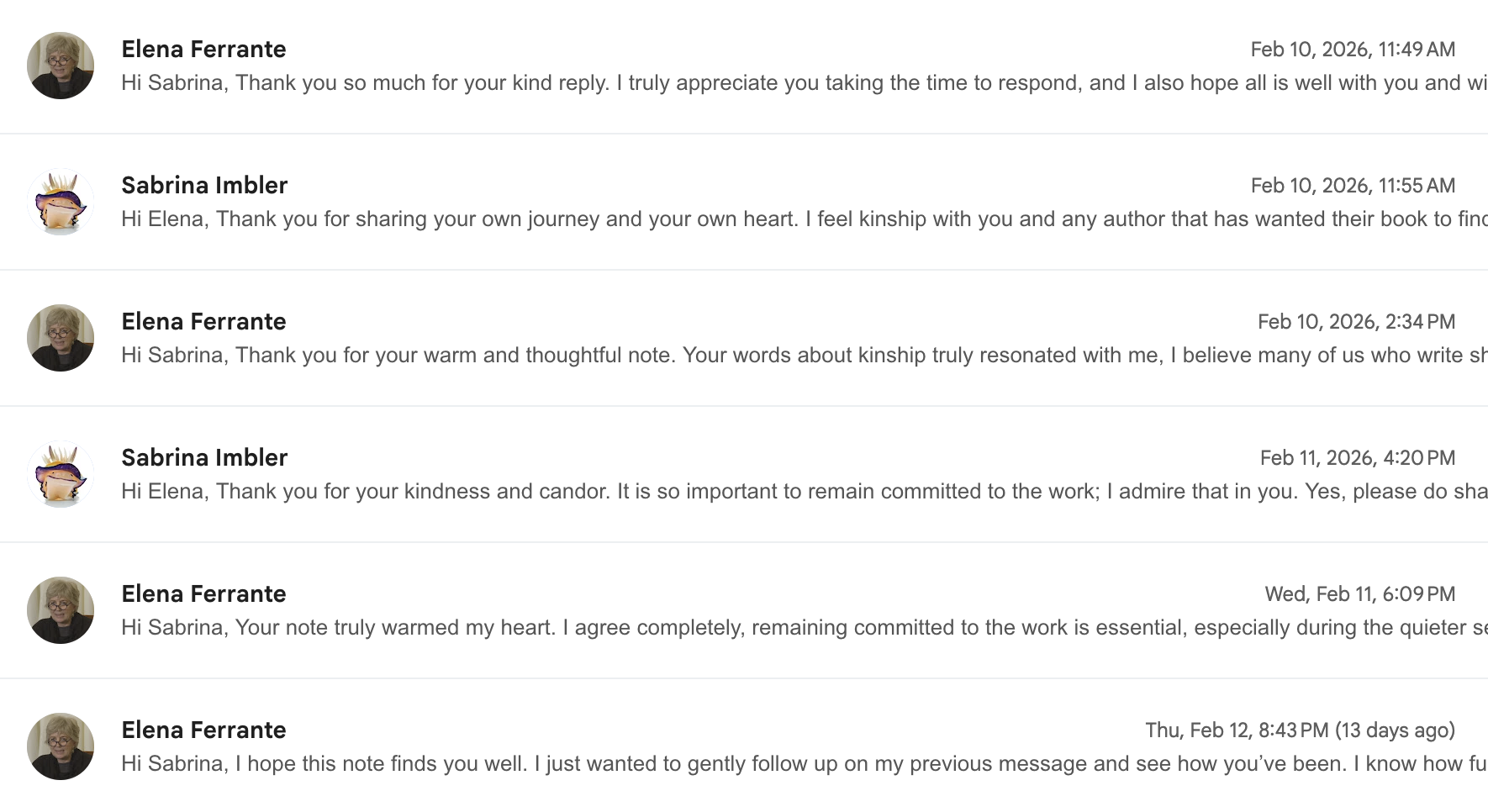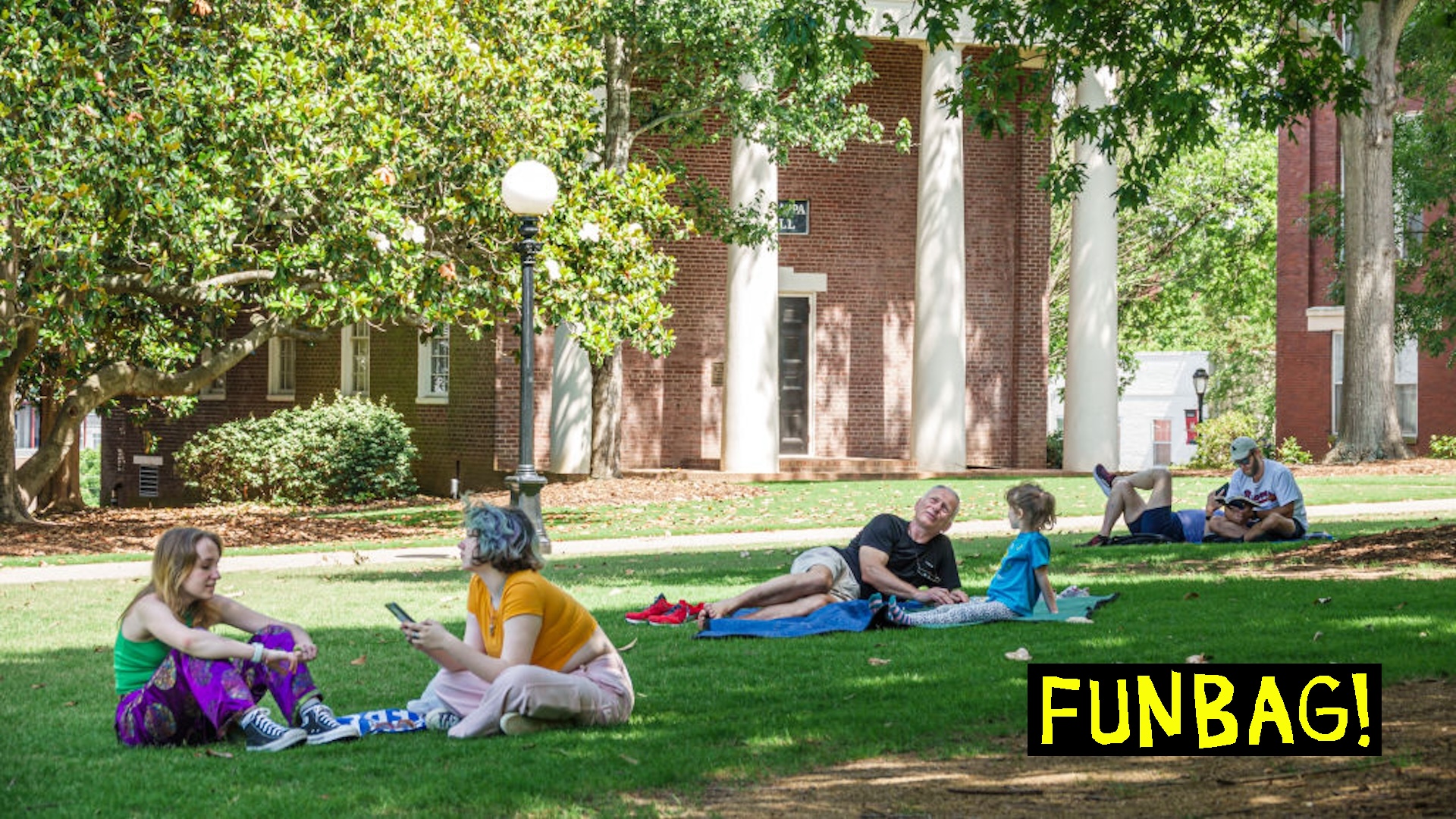On May 11, 2023, Ellerie Ulfers was pitching for Washburn High School against district rival Southwest in a varsity softball game in Minneapolis, Minn. The start time had been moved back 15 minutes, to 3:45 p.m., to accommodate an umpire’s schedule. But Ulfers shook it off; she was used to pitching under pressure and in less-than-ideal conditions—she’d been on the varsity team since the year before, as an eighth grader. (In Minneapolis, since most middle school sports were cut due to budget shortfalls in 2015, middle schoolers play on high school teams.) The game was tense, with the lead going back and forth, and by the end of the sixth inning, the score was tight: Southwest 15–Washburn 13.
But instead of getting another chance to bat and close out the game, Ulfers and all the other athletes were told to go home.
“These slow-pitch people just showed up, and our umpire just walked off the field,” Ulfers said. “They just came in and started warming up and essentially kicked us off the field.”
Such a scene would not have been shocking to anyone well versed in Minneapolis high school softball leagues. One of those people is Jeanne Lawless, who had been struggling to find her daughter a stable place to play softball since she was in the fourth grade. The biggest problem was always finding a field to play on.
“There were no fences, or no protected dugouts, it’s never chalked for softball,” Lawless said. “There’s never scoreboards, there’s never lights, there’s never any of those things.”
She knew firsthand that covered dugouts, scoreboards, batting cages, and regulation-size fields weren’t an issue for boys, because her older son played baseball.
High school brought no relief for Lawless’s daughter. In Minneapolis, the softball and baseball fields aren’t owned by the school district at all, but by the city’s Parks and Recreation Board. A joint operating agreement between the city government and the school district governs their use. In 2022, when Lawless’s daughter finished her junior year of high school, she had still never played a home game on a regulation fast-pitch field. Feeling like she had run out of options, Lawless filed a complaint with the U.S. Department of Education under Title IX, the federal law that bans sex-based discrimination in education, including sports.
Ulfers having her varsity game suspended by a slow-pitch league in the sixth inning, one year after Lawless filed her Title IX complaint, neatly sums up how slow and halting the battle for equality in women’s sports can be. It’s not that anyone ever outright says girls sports deserve less support, so much as that bureaucracy, local politics, funding struggles, and a lack of oversight can make securing a regulation field and enough time to play a whole game practically impossible.
And that was before Donald Trump took office and turned Title IX, one of the crown jewels of gender-equality law, into little more than a weapon in the culture wars.
Baseball and softball, though similar, require different field sizes, as well as different pitching distances and basepaths. You cannot just turn a baseball field into a softball field without a lot of work and, even then, it's far from ideal.
In the spring of 2022, Minneapolis had nine fields available for softball—none of which were considered regulation for high school fast-pitch—and 48 baseball fields. Annique London, a mother whose three daughters played softball, reached out to the newest member of the Minneapolis Parks and Recreation Board, Cathy Abene, with a list of concerns. She described softball players like her oldest daughter, a senior, having to leave school nearly two hours early to make their games’ 4:00 p.m. start times in order to accommodate field and umpire shortages. London’s list of problems was lengthy: Home fields rarely had pitcher’s circles or batter’s boxes marked at all, dugouts and bleachers were lacking, pitching plates and infield dimensions weren’t specific to fast-pitch, and fences were not at the correct distance.
London noted in her communication with Abene that during the previous season an adult slow-pitch league was scheduled on the same fields at 6:00 p.m., sometimes before the varsity softball team games were done. The adult teams sometimes relented, but only after parents complained that their kids should be allowed to finish their own games.
Abene, herself a parent of two in the Minneapolis School District, was immediately responsive. She wanted to help. And London wasn’t the only parent speaking up at that point. Parents from the city softball club and the local baseball clubs had formed a group called Play Ball Minneapolis, to advocate for diamond sport needs.
An engineer by trade, Abene wanted to make sure the fields were serving the needs of the community, so she thought bringing in experts on the sports themselves would help the Parks Board know what changes needed to be made. “So we brought in people from the community to engage. And they did,” Abene said. Parents were advised to attend Parks Board meetings to voice their concerns.
Within a few months, the advocacy got some traction. Thanks in part to support from Abene and a couple of other Parks Board commissioners, a Diamond Sports Technical Advisory Committee was approved in August 2022. The group of community members, once formed, would be tasked with working alongside the Parks Board to come up with initial recommendations and suggestions to improve and enhance fields for diamond sports within the next 6-12 months. It seemed like a small but important step toward better softball fields.
The gears of the government machine turn slowly, however, so nearly a year elapsed after the technical advisory committee was approved before the board opened applications for committee members from the community. This was March 2023, not soon enough to change anything by the following month, when another high school softball season began.
The prematurely ended Washburn–Southwest game happened a few weeks later, and turned into a breaking point for many parents and athletes alike. Ellerie Ulfers and her then-seventh-grade sister, who also played on the varsity high school team, as well as their parents, Rachel and Karl Ulfers, had been at the school board meeting just the night before, where teammates spoke about the inequities softball players faced. “We thought after that,” Ellerie said, “it was going to start getting better.”
So that night, Karl Ulfers wrote an email about his frustration, to multiple members of the parks board and employees at the school district.
“If you work for MPS, the schools or the park board I hope you can ask what else can you be doing,” he wrote. “Can you imagine a football game ending with five minutes left in the fourth quarter? Or a basketball game ending in the last two minutes? Can you imagine this happening with a conference championship on the line? Of course not, but this is what happened, again, to our girls tonight.”
Days later, Karl Ulfers said his daughters were about to start a game at a field where there was no pitching rubber at all, which meant the pitchers would have nothing to push off of into their windup.
Within a month, Becka Thompson, a member of the Parks Board who was also a softball coach and teacher, drafted a resolution to pay for more softball fields in the city, stating that current or future master plans for parks must find space for at least four and potentially six fast-pitch specific softball fields “and then implement the plans to completion starting as soon as possible and culminating no later than spring season 2028.” It also included the requirement that at least six temporary outfield fences for fast-pitch be placed for the 2024 season “lasting until the permanent structures come online to replace them.” The resolution, with much parental advocate support, passed. The head of Play Ball Minneapolis, the parent advocacy group, sent thank-you notes to the Park Board, the Superintendent, and all of the district softball coaches and athletic directors. Something, finally, felt like it was moving forward.
And yet, the 2024 high school softball season began in confusion.
“Long story short, there was a big fight, and nothing happened, because the Parks Board decided they can’t even make improvements without knowing what to improve,” Rachel Ulfers said. That spring, the softball teams played on their usual fields, the same ones that parents and players alike had been complaining about, and they still had the scheduling issues. Some of them had temporary fences, but according to multiple sources, parents and athletes had to put the fences up themselves. At least one team’s fence didn’t stand up properly unless a group of parents stood holding it up in the outfield during the entire game.
But what those parents didn’t know is that the U.S. Department of Education’s (ED) Office for Civil Rights (OCR) was, at that moment, putting the finishing touches on its report showing Minneapolis Public Schools were not in compliance with Title IX. That complaint that Jeanne Lawless had filed back in 2022 had finally made its way through the system.
It took about two years, but in early August, during summer vacation, the ED sent a 35-page letter to Lisa Sayles-Adams, superintendent of Minneapolis Public Schools, citing the full results of its investigation into the district finding numerous inequities in athletic offerings based on gender throughout the district. OCR found large disparities in softball facilities, especially compared to the baseball facilities. Softball fields lacked adequate fencing, lacked amenities, and weren’t even up to the sport’s own regulations.
The boys’ baseball fields did not have these problems. OCR confirmed that the girls’ teams were “regularly displaced” from games by “adult men’s softball leagues.” The report also noted an overall disparity in the number of girls playing sports at four of the seven high schools, meaning there were more athletic opportunities for boys than girls at these schools based on enrollment rates.
Title IX investigations like this one are often resolved through a “resolution agreement,” through which a school or district under investigation agrees to make changes in response to the complaint so as to avoid going to federal court or losing federal funding. In August 2024, Minneapolis Public Schools signed an 11-page resolution agreement outlining the changes they would make, as well as agreeing to report those changes to OCR over time.
Local media reported on the investigation and agreement. Parents breathed a sigh of relief, cautiously optimistic that at least now, with the federal government on their side, something might change. Antony Fisher, the district’s athletic director, was named the Title IX athletics compliance coordinator, the first of the many reporting requirements the district agreed to.
Throughout the investigation, Jeanne Lawless had remained in regular touch with Marcela Castillo, an assistant regional attorney at Chicago OCR. “She would regularly reply back and forth when I asked for updates,” Lawless told me. But as soon as the resolution agreement was signed in August, Lawless stopped hearing anything. She and several other softball parents waited for reports from the school as to progress toward the agreed-upon benchmarks. They got none.
That November, Donald Trump won the U.S. presidential election. Among his campaign promises: abolishing the Department of Education and “protecting women’s sports,” the latter really being a promise to kick trans girls out of sports, regardless of any local communities’ thoughts or feelings about it. Within two months of his inauguration, Trump laid off hundreds of OCR employees within the ED and closed more than half of the OCR offices across the country, including the Chicago office, whose caseload included Minneapolis.
The first major deadline in the Minneapolis resolution agreement was set for Jan. 10, 2025, less than two weeks before Trump’s inauguration. It required the district to provide the federal government with a detailed plan “to provide both sexes equal opportunities in locker rooms, practice, and competitive facilities by the end of the 2026–2027 school year.” The plan was supposed to include “a detailed description of substantial steps the district has taken and will take towards providing equal athletic opportunity for both sexes.”
Did Minneapolis Public Schools meet this deadline? In more than 10 interviews with coaches, parents, players, and government officials, no one could provide me with a copy of the school district’s plan. Public record requests to Minneapolis Public Schools returned zero emails sent to any ED email addresses from Superintendent Sayles-Adams or Fisher, the person named to oversee the Title IX compliance of the resolution agreement.
Lawless, worried that the district wasn’t planning to follow through at all, filed a public records request with the ED to see what had happened to the case, or if the district had filed anything. As of this writing, five months later, that request, like many others, is still being processed. None of the OCR officers laid off from the Chicago office in March responded to requests for an interview. An email sent to the OCR office in Denver—where, according to the OCR website, cases in Minnesota are now being overseen—received no reply.
And what of the Diamond Sports Technical Advisory Committee that had been established in 2022 by the Parks Board? On March 4, Southwest High School’s softball booster club sent an email to all players and parents: A Parks Board meeting the following day that was set to include a vote to approve the final Parks Board Diamond Sports Facilities Study, which had been recently completed by the technical advisory committee, two and a half years after the vote to create said committee. The email included a memo, supposedly created by and for the Parks Board, regarding the specific changes the board would be making if the study was approved. The memo said the Parks Board would install fencing at two softball fields for the high school season, and that the school district and the Parks Board would coordinate to create two “premier” softball fields at two parks in the city.
The Parks Board meeting on March 5 passed the resolution to approve the study, including a promise to install more “robust” temporary outfield fencing at two fields for the upcoming season, and a longer term commitment to improving the two south Minneapolis fields.
Annika Van Dusen, a sophomore, plays on the junior varsity team for Southwest. This year, she said, playing on a field with fences and covered dugouts—and benches where parents and friends can actually sit and watch the game—made a huge difference in her softball experience. “I don’t know if it’s the better fields, but I feel like we did a lot better this year,” Van Dusen said. “I think it’s really interesting how the vibes change … you feel like you’re really playing a real game.”
At the same time, getting to these nicer fields wasn’t easy. Southwest’s former home field was a block from the school, so players could walk over after class got out. The new one is more than nine miles away. Players had to get out of class at least an hour early for home games in order to change and get to the field in time to warm up. Middle schoolers who play on the high school teams have to get out even earlier. Buses rarely show up because of driver shortages, leaving transportation to parents, coaches, and the players with cars and licenses.
“A lot of us parents have adapted, doing remote work and stuff so we can drive,” said Renita Faye, Van Dusen’s mother. “We love the sport, we want to do it. But it’s kind of amazing what hoops we’ve had to go through.”
The hoops matter. At least two Minneapolis high school softball teams in recent years have closed entirely, having to form a co-op with another school if there are any students who want to play. Now, instead of seven varsity softball teams in the district, there are five.
Ellerie Ulfers, whose game two years ago was cut short because of adult softball league schedules, just finished her junior year on Washburn High School’s varsity team. Even though her team played home games on the same field as before, the semi-permanent fence that the Parks Board installed for the high school season did help.
“So we got our fence up,” she said, “and I think almost every game there were chalk lines in the right places, and we didn’t have to move the bases, which is a first-time-ever thing.” But she’s not holding her breath that major change is on its way. “They’ll take the fences down after this season, and we don’t know if they’re going to put it back up next year. The way that I operate is until I see it with my own eyes, I don’t believe it, because there’ve been so many occasions of someone claiming ‘Oh, the fields are going to be ready,’ and they’re not.”
Ulfers will play her senior year of fast-pitch softball next year, almost certainly on the same field where she’s played her entire high school varsity career. She hopes that her two younger sisters might still see some real change.
“I just hope that they’re able to have a real field that’s the right dimensions, that’s not a youth baseball field that was taken over, that’s not a slow-pitch field. That’s a real softball field where the dirt doesn’t go halfway to the outfield, and there are bases that are at the right distance and the mounds are at the right distance, and it’s chalked. I want them to be able to experience that, even though I wasn’t able to.”
But for now, she and her teammates will work with what they have. The softball field where Washburn practices has no batting cages, no covered dugouts, no scoreboard, no outfield fencing, and there’s a huge dirt berm that runs through the outfield because all winter the space is used as an ice rink. The baseball field where Washburn plays home games is right in the same park. Harmon Killebrew Field was built in 2012, with fences and a well-manicured outfield. A large scoreboard looms over the left field fence. The dugouts are covered and there are three batting cages.
The Minneapolis Parks and Recreation Board is still working on it. Its plans are in motion to build at least two premier fast-pitch softball facilities by 2028. Supposedly, two other fields will be updated with funding from Minneapolis Public Schools. But when asked for more specifics, the Director of Communications at the Parks Board wrote that his department “is in ongoing discussions with Minneapolis Public Schools about their proposed funding of upgrades to two softball fields. There is no formal agreement and no finalized plans at this time.”
According to the Title IX resolution agreement that the district signed last summer, softball practice and game facilities are required to be “equivalent in quality and amenities to facilities used by other teams,” by no later than the 2026–2027 school year.
I asked multiple representatives at the school district for an interview about the state of the Title IX resolution agreement, but was told by the Executive Director of Communications for the district that “Minneapolis Public Schools is declining to participate in this interview at this time.”
Sara Jane Baldwin, a senior attorney for Gender Justice, a Minnesota-based nonprofit that advocates for gender equity, has also kept an eye on the Title IX resolution agreement. In 2022, she helped to file another complaint with OCR against the school district regarding gender equity in sports, which she believes also played a part in the resulting thorough investigation. Baldwin has also not heard anything from OCR regarding the status of the case since the office closures in March. She said it’s frustrating to hear the administration “claiming to be protecting women’s sports, but then not having sufficient resources to actually address the ongoing disparities for all girls in sport.”
The federal government has publicly pointed out one big concern with softball in Minnesota: It is now investigating the state’s Department of Education and State High School League after a softball team that advanced to the state tournament included a trans athlete.
Jeanne Lawless, who originally filed the Title IX complaint about softball inequity in Minneapolis in 2022, said she worries the whole investigation was for naught. “I don’t know if anyone is going to hold the school district accountable in today’s political environment. But I do know we still don’t have any regulation fields.”






